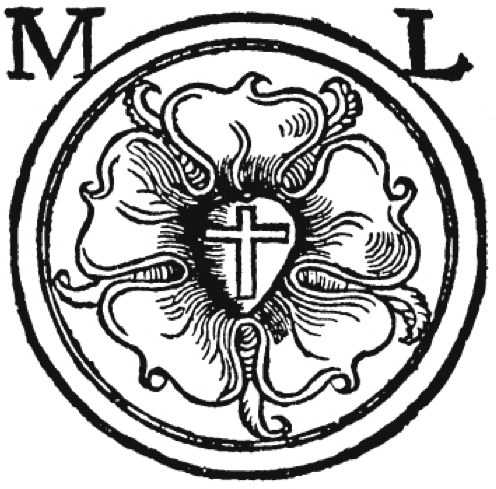Building Up the Culture of the Family of God
What is Culture, and Why Does It Matter?
God took forty years to purge the children of Israel from the cultural and theological customs that they had learned in Egypt. God used the ten plagues of His judgment of Egypt to debunk the idolatry of Israel’s slave-masters and prepare them for His Word and worship. But much of what God gave and commanded Israel in the political and ceremonial laws recorded by Moses was designed to separate His people from the culture of the Canaanites into whose land they were entering. It was not simply a matter of rejecting sin. God forbade their rituals, customs, and cultural practices because they were interwoven with idolatry and false doctrine. In the place of these practices He established a distinctly Christian, Old Testament culture. God instituted and created a culture for His unique and precious people by His divine Word.
District leadership has chosen a theme for the 2025–2028 district triennium that gives us occasion to consider what God says about culture: “Building up the Culture of the Family of God.” Many of the articles and essays in the Roundup for the next three years will revolve around the many aspects of this theme. See, for example, the article, “Where are the Homemakers?” in the last Roundup.
In this article we begin with a basic definition: What is culture? Culture is how a community lives together in a place. It encompasses the beliefs, language, rituals, and virtues of that community. It includes the institutions, knowledge, and worldview of that community.
For the Christian, and for the community of Christians, culture is instituted, shaped, nourished, and governed by the Word of God. Culture is the natural expression of man’s created nature. God created man for marriage, church, and community. Man was commanded to work in Eden and settle it for his new family. He was given God’s Word to direct his actions. He was enculturated from the beginning.
Culture embodies the beliefs of a community. Our Christian beliefs, what we call sound doctrine or the true faith, are taught us in God’s Word. These convictions include the application of God’s Word to how we live our lives in our home, our congregation, and our civil community. Our faith take outward shape in our worship of God and our works for our neighbors.
When we refer to the language of our culture, we are not merely referring to the English language. It is true that when our Lutheran forefathers (whether German, Norwegian, Wendish, Danish, Swedish, or Finnish) came to this country, they realized that adopting a new mother tongue for their children would run the profound risk of jeopardizing the Lutheran culture that was bound up with the language of the Old Country. The language of a culture includes the words and phrases we use in common, our generally accepted terms and definitions of important ideas, our common historical and literary tradition, even the things we have memorized together. Our historic liturgy and readings, catechism, Lutheran hymns, and doctrinal heritage constitute a common cultural language for us. Ultimately, God’s Word is our cultural language.
A distinct culture is practiced and passed on to others through common rituals. Ritual is the enactment of beliefs, relationships, offices, and the like. Good manners are a kind of ritual. The church’s liturgy is ritual. Weddings and the married life are highly ritual enactments of our humanity. The worship life of the church, her sacraments, her pastoral office, her prayers, and her care for one another are all a part of the church’s ritual, essential to her culture. The church’s rituals are handed down to us through tradition, but they are not governed by tradition. They are governed by the Word of God and shaped by Christian charity toward one another.
A particular characteristic of culture among Christians is the piety, or virtue, which is often the first aspect of our culture seen by outsiders. “See how they love one another.” Virtue is a word that describes our moral disposition, and piety (or godliness) emphasizes that this disposition is in relation to God. True virtue is a gift of the Holy Spirit which He works through the Gospel and in accordance with the eternal will of God. Culture among Christians not only expresses Christian piety but also nourishes and encourages it. What we might call Christian culture today has generally been called Christian piety by our Lutheran forefathers.
We will be probing many aspects of “Building up the Culture of the Family of God” in the months to come. God has much to say about the matter in His Word. Here we may summarize a culture of Christian virtue in this familiar and beautiful passage from Philippians 4:8–9:
Finally, brothers, whatever is true, whatever is honorable, whatever is just, whatever is pure, whatever is lovely, whatever is commendable, if there is any excellence, if there is anything worthy of praise, think about these things. What you have learned and received and heard and seen in me—practice these things, and the God of peace will be with you.
REFORMATION 500: The Peasants Revolt

One of the most important political events in Germany in 1525 was the Peasants Revolt. The rebellion that began in the summer of 1524 reached its highwater mark between March and May 1525. There was some justice on the side of the peasants. The peasants were experiencing significant poverty in the rural areas and among the urban lower classes. Governmental structures were being changed, with the result that some of the ancient rights of the peasants were being violated. Taxation had become a burden, including taxes owed to church institutions. The resulting resentments were supported, at least in the minds of the peasants, by the Reformation critique of the Roman Catholic Church and the call for evangelical freedom.
But responsibility for the revolt cannot be attributed to Luther, at least not from his own words and actions. Luther had recognized the injustice of some financial practices, including unfair taxation and usury, the charging of high interest rates. He had rejected the destruction of old ecclesiastical government structures. In that respect, Luther advocated a conservative Reformation, making changes only where it was necessary to promote and express pure doctrine. In every case, he rejected rebellion and revolt as being among the greatest of all possible civil evils. In particular, he opposed the preacher, Thomas Müntzer, who was the spiritual and political leader of the peasant rebellion.
In the middle of March 1525 a pamphlet appeared known as the Twelve Articles. The pamphlet appealed to evangelical theology on behalf of the peasants, seeking reforms in both the ecclesiastical and civil spheres. Many of the pamphlet’s demands were just. Toward the end, it included a veiled threat if the demands were not addressed. Although the pamphlet received broad distribution, coming even to Luther, it was not received well or acted upon by the princes. Battles broke out in various places at the end of March and throughout the month of April, though none of them in Electoral Saxony. The peasants won some surprise victories and suffered one defeat.
During this time, April 16 to May 6, Luther traveled to Eisleben and made various stops along the way. As he travelled, he worked on a pamphlet, Admonition to Peace, which was published by the date of his return to Wittenberg (AE 46.3–43). He observed, against the peasants, that the destruction of the temporal realm would make it impossible to preach the Word of God. Indeed, even greater disasters would follow for all of Germany when the Word of God had been silenced. He observed that some of the demands of the peasants were just, while others were self-interested. He urged the princes to yield on some matters. But his plea for peace fell on deaf ears.
In fact, his pamphlet was already outdated by the time it was published. The war of the peasants was spreading and threatening to engage more German territory. On May 10 Luther published again, a work known by the title, Against the Raging Peasants (AE 46.45–55). He came out strongly against the revolt that had broken out and identified the “false prophet” Thomas Müntzer as the leading spirit of this rebellion. He rebuked the peasants, calling them to repentance and the abandonment of their rebellion. He condemned the peasants if they refused to repent and obey their God-given authority. He then proceeded to advise the consciences of the civil authorities concerning their duties from God’s word. The rulers should negotiate with the peasants if possible. If not, they should strike forcefully with a clear conscience.
In the midst of this turmoil, and perhaps partly because of it, Elector Frederick the Wise died, May 5. Luther preached at his funeral in Wittenberg. On May 15 an army of Thuringian peasants were slaughtered in battle by their civil rulers at Frankenhausen. The rebel false preacher Müntzer was captured in the battle and executed on May 27.
The defeat of the peasants at Frankenhausen quieted the revolt, but not the accusations and criticisms. Luther often found himself at the center of the competing interests of the peasants, the civil rulers, the Roman Catholics, and the radical reformers. All sides could find reason to accuse Luther of fomenting the rebellion or of promoting the cruel slaughter of the peasants. In the early half of July 1525 Luther wrote in response to the criticism, An Open Letter on the Harsh Book Against the Peasants (AE 46.57–85). He continued to affirm the duty of the princes to put down the rebellion with force. Although he may not always have understood all the forces at work in the revolt, he consistently applied the doctrine of Holy Scriptures to this complex and dangerous political situation. He had advocated for the duty of the princes to crush the rebellion. Afterwards, he also urged the princes to have mercy and to correct their own abuses and tyranny. God would judge all those involved, both princes and peasants.
Scholars continue to debate Luther’s role and responsibility in the Peasants Revolt. But there are lessons that we should learn from his conduct in this dangerous political situation. We should note, first, Luther’s understanding that the Word of God cannot be preached and have free course when civil authority has been destroyed. The church, and pastors in particular, have a theological and ecclesiastical interest in the maintenance of just laws, civil peace, and good order. Pastors in our own day have had to address the outright rejection of divine, natural law and moral order in the laws and culture of our local and national governments. These open violations of God’s law threaten our ability to preach the Word of God freely.
Second, we should learn from these events that the preaching and course of the pure doctrine of God’s Word will always produce reactions and responses from civil society and government. We are the salt of the earth, the light of the world, and the city which has been set on a hill (Matthew 5:13–16). The gospel which we preach must inevitably change not only hearts but also lives, and in changing the lives of people, the world around them must also be changed. History is a witness to the many salutary effects that the church has had upon the civil society and government around it. But the Word of God also provokes the hatred of the world and the wrath of Satan, so that the church cannot always dwell in peace, but must often suffer afflictions and persecutions.
Third, we see that Luther the pastor did not, and indeed could not, avoid engagement with the events of his time. He preached, taught, and wrote about these events, giving very direct instruction and counsel from God’s word. The preacher today might be reminded that his central and primary task is to preach the whole council of God centered upon the saving gospel of Jesus Christ. But God’s Word will certainly teach him to address also the civil and political events of his own day. We cannot avoid the troubles of the civil communities in which God places us. But we must give the help and counsel of God’s Word to our neighbors, and especially to those in authority. In any case, we can keep our own consciences clean by learning and keeping God’s Word in our own speech and conduct.

